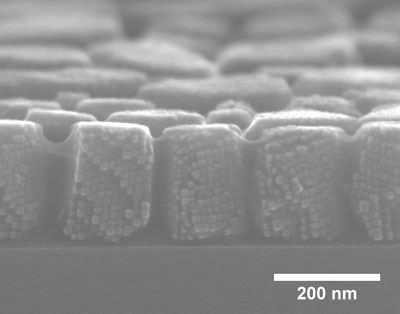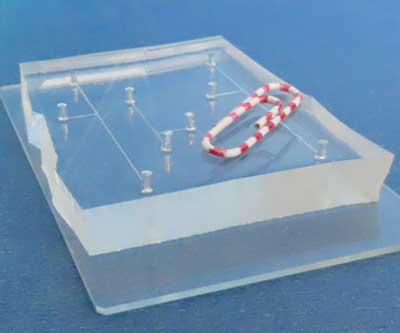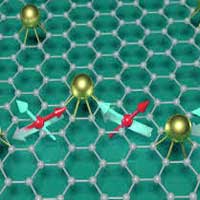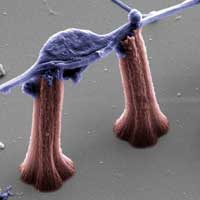 The strength of the supercrystals in combination with their enhanced magnetic properties will be key to developing future uses, which could span everything from applications for the automotive industry to information technology.
The strength of the supercrystals in combination with their enhanced magnetic properties will be key to developing future uses, which could span everything from applications for the automotive industry to information technology.
Thursday, November 14, 2019
Super-strong magnetic supercrystals can assemble themselves
 The strength of the supercrystals in combination with their enhanced magnetic properties will be key to developing future uses, which could span everything from applications for the automotive industry to information technology.
The strength of the supercrystals in combination with their enhanced magnetic properties will be key to developing future uses, which could span everything from applications for the automotive industry to information technology.
Scientists design built-in controls for mini-chemical labs on a chip
 Researchers share their discovery of a way to program built-in controls in a microfluidic network.
Researchers share their discovery of a way to program built-in controls in a microfluidic network.
Novel nanostructures could make smartphones more efficient
 Researchers are pushing the boundaries of the laws of physics, developing nanocomposite materials and nanoelectronic circuits to greatly improve energy, thermal and computing performance. This could make smartphones and other electronics more efficient and boost the potential of solar power.
Researchers are pushing the boundaries of the laws of physics, developing nanocomposite materials and nanoelectronic circuits to greatly improve energy, thermal and computing performance. This could make smartphones and other electronics more efficient and boost the potential of solar power.
Carbon nanotubes open new horizons for neuroscience: controlling neural cell outgrowth
 Researchers demonstrate that carbon nanotubes can be used to control the direction of neural cells growth.
Researchers demonstrate that carbon nanotubes can be used to control the direction of neural cells growth.
Subscribe to:
Comments (Atom)
